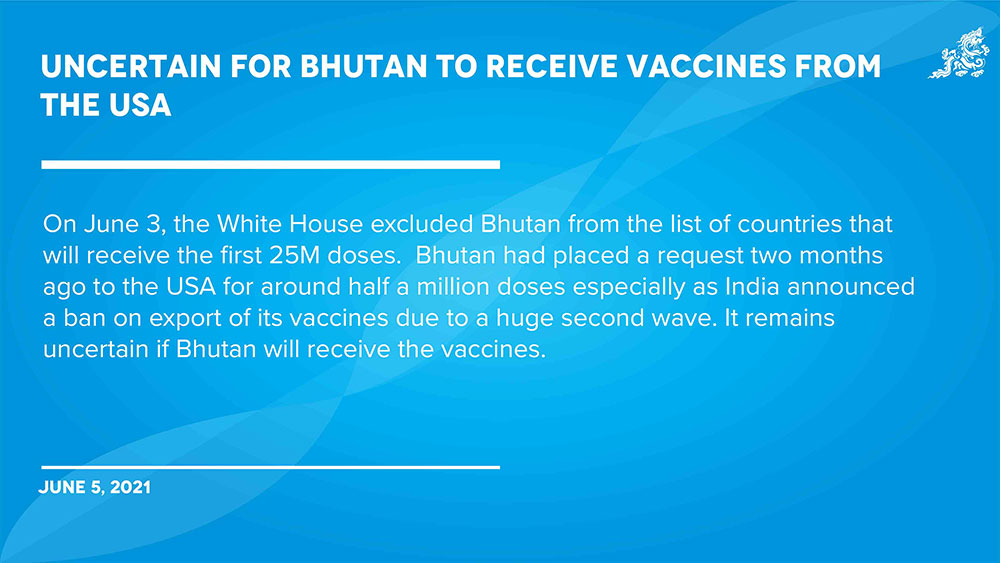While many countries around the world will receive 80 million doses from the USA soon, it is uncertain if Bhutan will receive any of it.
Speaking during a special briefing via telephone yesterday evening, State Department Coordinator for Global Covid-19 Response, Gayle E. Smith, said that they were aware that Bhutan had requested AstraZeneca (AZ) doses. “However, our ability to deploy those AZ vaccines depends on receiving clearance from the FDA,” Smith said. “Now, the FDA, our Food and Drug Administration, is a regulatory public health agency that works, and one of the most important elements of any regulatory agency is that it has independence so that we cannot interfere.”
She said it needs to have the autonomy required to do all the studies. “So, we are hopeful we will get clearance soon. We are not in a position to say when that will come true because that’s the purview of the FDA.”
In terms of dose amounts, it is going to be worked out in consultation with a number of parties and based on the type of vaccine, Smith said.
This comes after the White House on June 3 excluded Bhutan from the list of countries that will receive the first 25M doses. Bhutan placed a request two months ago with the USA for around half a million doses especially as India announced a ban on export of its vaccines with a huge second wave.
Executive Director of the USAID Covid-19 Task Force, Jeremy Konyndyk, said, “This is only the beginning. We’re quite pleased to be doing this; this puts us in the lead in terms of international dose sharing, with the 80 million commitment. ”
Konyndyk said that while they are pushing hard to share vaccines, they are also providing support to countries that are experiencing dire surges of the virus. “We are also providing assistance to a wider range of countries, whether or not they’re experiencing surges, to enhance their readiness to manage what they may be facing in the next year while the vaccine reaches a larger global scale,” he said.
Of the 25 million doses the USA is sending seven million to Asia and the region.
By Rinzin Wangchuk
Edited by Tshering Palden


